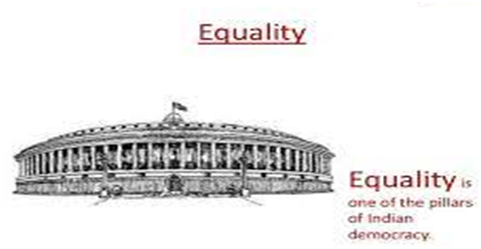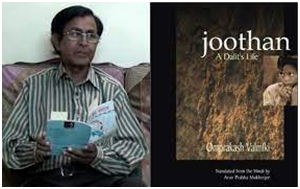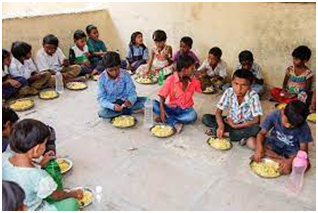- Books Name
- Social Science Book
- Publication
- Cognizance Publication
- Course
- CBSE Class 7
- Subject
- Social Science
Chapter 1
Equality in Indian Democracy
Equality

In a democratic country like India, all the adults, irrespective of their religion, their education, caste, or rich or poor are allowed to vote. This is called Universal Adult franchise and is an essential aspect of all democracies. The idea of universal Adult franchise is based on the idea of equality because it states that every adult in a country, irrespective of their wealth and the community. she/he belongs to, has won vote.
Other kinds of equality
Poverty is one of the main basis of inequality in India. Apart from poverty, people in India experience inequality in different ways. Caste is one of the most common forms of inequality in India. If you live in rural India, your caste identity is something that you probably learned or experienced very young. If you live in urban area, some of you might think that people no longer believe in caste. But if you look at some of the matrimonial sites from a leading English newspaper, you will see how important the issue of caste continues to be in the mind of educated urban Indians.

Dalits(lower caste) still face discrimination in various ways. Dalit means ‘broken’ and by using this word, lower castes are pointing to how they were, and continue to be, discriminated against OmPrakash Valmiki(1950-2013) is a famous Dalit writer. In his autobiography “Joothan” he writes , “I had to sit away from the others in the class and that too on the floor. The mat ran out before reaching the spot I sat on. Sometimes I would have to sit way behind everybody, right near the door or sometimes they would beat me without any reason.” When he was in class 4th, the headmaster asked OmPrakash to sweep the school and the playground. He writes, “the playground was very larger than my small physique could handle and in cleaning it, my back began to ache.

My face was covered with dust. Dust has gone inside my mouth. The other children in my class was studying and I was sweeping. Headmaster was sitting in his room and watching me. I was not even allowed to get a drink of water. I swept the whole day.” Om Prakash was made to sweep the school and the playground for the next couple of days and this only came to an end when his father, who happened to be passing by, saw his son sweeping. He confronted the teacher and then walking away from the school holding OmPrakash’s hand.
The second story is based on the incident that took place in one of the India's largest cities and is common practice in most part of the country. It is a story about Mr and Mrs Ansari, who are looking for rent an apartment in the city. They had the money and so paying the rent was not problem. They went to property dealer to help to find the place. The dealer informed them that he knew about quite a few apartments that are available for rent. They visited the first apartment and Ansari liked it very much and decided to take it. However, when the landlady found that their names, she made an excuse about how she could not rent the house to someone who ate meat, because the building did not have any non-vegetarian residence. Both the Ansari’s and the property dealer was surprised to hear this because they could smell fish being cooked in the neighbours house. The same excuse was repeated in the second and 3rd apartment. Finally, the property dealer told them that they might want to change their names and call themselves Mr and Mrs Kumar.Ansari's were reluctant to this and decided to look some more. In the end, it took a month of looking at apartments before they found the landlady who was willing to give them a place on rent.
Recognising dignity
When persons are treated unequally,their dignity is violated.
The dignity of both OmPrakash Valmiki and the Ansaris was violated because of the way in which they were treated. Buy picking on him and making him sweep the school because of his caste. OmPrakash Valmiki school mates and teacher hurt his dignity badly and made him feel as if he was less than equal to all other students in the school. It was his father who, on seeing his son sweep felt angry by this unequal treatment.
The Ansari’s dignity was also hurt when people refused to leave their apartment to them.It was their dignity and self respect that made them refuse this suggestion of changing their names.
Om Prakash and the Ansari’s did not deserve to be treated like this. They deserve the same respect and dignity has anyone else.
Equality in Indian democracy
The Indian constitution recognises every person as equal. This means that every individual in the country, including male and female persons from all castes, religions, tribes, educational and economic backgrounds, are recognised as equal. This is not to say that inequality ceases to exist. It doesn’t. But atleast, in democratic India, the principle of the equality of all person is recognised. Now there are several laws to see that people are treated with dignity and as equals. There are certain provisions provided in constitution for the recognition of equality:
- Every person is equal before the law.
- No person can be discriminated against on the basis of their religion, race, caste, place of birth, or whether they are male or female.
- Every person has access to all public places, including playgrounds, hotels, shops and markets.
The 2 ways in which the government has tried to implement the equality:
- Through laws in the Constitution.
- Through government program or schemes to help disadvantaged communities.
In addition to laws the government has also set up several schemes to improve the lives of communities and individuals who have been treated unequally for several centuries. These schemes are to ensure greater opportunity for people who have not had this in the past.
One of the steps taken by government includes the Mid-day meal scheme. This refers to the program introduced in allgovernment elementary schools to provide children with cooked lunch. Tamil Nadu was the first state in India to introduce this scheme in 2001, the Supreme Court, askedallstate governments to begin the program in their schools within six months. This program has had many positive effects. These include the fact that more poor children have begun enrolling and regularly attending schools. Their attendance has improved. Their mothers, who earlier had to interrupt there work to feed their children at home during the day, now no longer need to do so. This program also help reduce caste prejudices because children of all castes in the school eat this meal together, and in quite a few places, Dalit women have been employed to cook the meal. The midday meal programme help in reducing the hunger of poor students, who often come to school and cannot concentrate because their stomachs are empty.

While government program plays an important role in increasing equality of opportunity, there is much that still needs to be done. While the midday meal prgramme has helped increase the enrollment and attendance of poor children school, there continues to be big difference in our country between school that the rich attend and those that the poor attend. Even today, there are several schools in the country in which Dalit children are discriminated against and treated unequally. These children are forced into unequal situation in which their dignity is not respected. One of the main reason for this is that attitude change is very slowly. Even though persons are aware that discrimination is against the law, they continue to treat people unequally on the basis of their caste, religion, disability, economic status. It is only when people begin to believe that no one is inferior and that every person deserves to be treated with dignity, that present attitude can change.

 Cognizance Publication
Cognizance Publication
